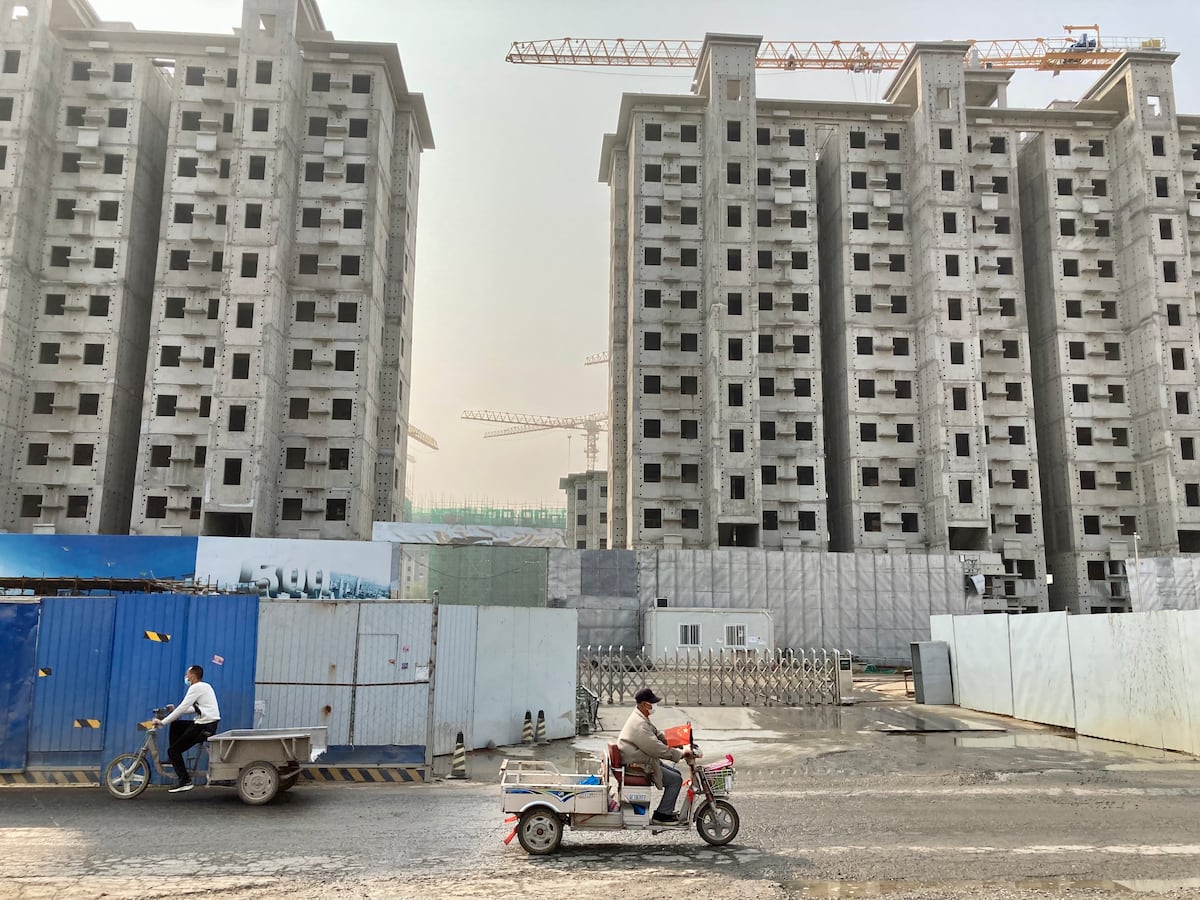China’s economy grows at its slowest pace in a year and a half | Economy

The Chinese economy is once again showing signs of weakness. The country’s gross domestic product (GDP) increased by 4.6% year-on-year between July and September, the lowest in 18 months, the Office for National Statistics (ONE) reported this Friday. Although this is the second quarter in a row in which official data fell below the target of “around 5%” set by the government for this calendar, the statistical agency considers the growth trend to be “stable” with “an accumulation of positive development factors.” recovery.” However, he recognizes “new situations and new problems in national economic development.”
The real estate market continues to be the Achilles heel of the second world economic power. Property development investment fell 10.1% year-on-year between January and September, while retail space in newly built properties recorded a 17.1% year-on-year decline, according to data released this morning. Beijing, concerned about the results, has rolled out a series of stimulus measures in recent weeks to turn the tide, such as cutting interest rates and mortgage rates, raising debt limits for local governments to support development of the commodity sector and boosting financing for housing projects. The purpose is to support developers in ongoing work. Bruce Pang, chief economist at British real estate firm JLL, told Reuters the stimulus package “will take time and patience to drive economic growth in the coming quarters.”
“Starting this year, the macroeconomic environment has become complex and changing. “External pressure is rising, and internal pressure is at a critical period of structural adjustment,” said Sheng Laiyun, deputy director of ONE, during a press conference announcing the data. The Chinese official assured that there are signs of economic recovery and called it “robust”, but did not hide that “the foundations for strong economic recovery and growth need to be strengthened.”
Sheng also mentioned “increasingly visible structural contradictions in employment.” He noted that young Chinese have difficulty entering the labor market, but at the same time, “it is difficult to recruit personnel into the manufacturing industry,” especially “skilled ordinary personnel.” This week, Hong Kong’s South China Morning Post cited a report from the China Federation of Industry and Commerce indicating that 2023 will see the biggest contraction of large private companies in China since 2011. Sheng also took the opportunity to insist that China must promote “high-quality development” in line with the new model of technological upgrading that Beijing is pursuing and has become a priority for 2024.
Improve Bad Expectations
Although this is the slowest pace of growth since March 2023, the news did not take experts by surprise, who had forecast slightly lower GDP growth of 4.5%. Analysts at US investment bank Goldman Sachs said the figures “far exceeded low expectations” as they received a boost from strengthening industrial production, which rose 5.4% year-on-year in September. and fixed investment, which grew 3.4% year on year in the first three quarters of 2024 after issuing government debt. In addition, retail sales also rose 3.2% in September compared to the previous year.
While many experts believe the stimulus measures announced by the government in recent weeks are a step in the right direction, many are missing important actions aimed at directly boosting household consumption and restoring the confidence they appear to have lost in the wake of the Covid-19 pandemic. The Treasury Department’s fiscal plans focus on helping local governments, debt refinancing and recapitalizing state-owned banks. Last week the Treasury Secretary promised to “significantly increase” debt to revive economic growth, but the size of the promised stimulus package is currently unknown. China could raise six trillion yuan (about 720 billion euros) by issuing special three-year treasury bonds to revive the economy through extended fiscal stimulus, Chinese economic media Caixin recently reported.
The Asian country’s economy as a whole grew by 5.2% in 2023, and authorities have again set a growth target of “about 5%” for 2024. In the first quarter, GDP grew by 5.3% year-on-year, and in the second quarter it grew by 4.7% year-on-year.
